Deep Cycle Golf Cart Batteries: What They Are, How to Choose, and Why Lithium Is Changing the Game
Introduction
Whether you’re a golf course fleet manager or a weekend golf enthusiast, battery performance is critical to the reliability and efficiency of your cart. Among various battery types, “deep cycle golf cart batteries” are the industry standard—designed to handle the continuous, steady power demands that carts require. But what exactly makes a battery “deep cycle,” and why are many users now considering switching to lithium alternatives? This article explores these questions in depth to help you make informed, long-term decisions.
What Makes a Battery “Deep Cycle”?
Unlike car starter batteries that deliver short, high-power bursts to crank an engine, deep cycle batteries are built to provide a consistent flow of power over an extended period. In technical terms, they are optimized for a high Depth of Discharge (DoD), typically up to 80%, and a long cycle life.
Key attributes of deep cycle batteries include:
- Thicker plates to withstand frequent charge/discharge cycles
- Lower peak current, but more stable voltage delivery
- Higher cycle count, often ranging from 500 to 2000+ cycles depending on the chemistry
These characteristics make them ideal for applications like golf carts, where long runtimes and frequent charging are part of daily use.
Why Golf Carts Need Deep Cycle Batteries
Golf carts operate under a unique load profile. They don’t need high startup currents, but they do require long periods of moderate discharge while transporting passengers, equipment, or tools around courses, resorts, or industrial facilities.
Consider the following usage scenarios:
| User Type | Frequency of Use | Key Battery Requirement |
| Recreational Golfer | 1-2 times/week | Moderate runtime, low upkeep |
| Golf Course Fleet | Daily, full day | High cycle life, fast recharge |
| Resort/Hotel Operations | Daily, variable | Long runtime, durability |
| Industrial Campuses | Daily + terrain | Ruggedness, deep DoD |
In all cases, deep cycle batteries offer the right balance between capacity, reliability, and cost-efficiency.
Types of Deep Cycle Batteries for Golf Carts
- Flooded Lead-Acid (FLA)
- Cheapest upfront cost
- Requires regular maintenance (watering, corrosion checks)
- Sensitive to temperature and vibration
- AGM / Gel Batteries
- Maintenance-free
- More expensive than FLA
- Limited cycle life improvement over FLA
- Lithium Iron Phosphate (LiFePO4)
- Highest initial cost, lowest total cost over time
- No maintenance required
- 2000-4000+ cycles with >80% DoD
- Light weight, fast charging
Lithium deep cycle batteries are rapidly becoming the preferred option for users seeking long-term performance and operational savings. Their ability to deliver full power throughout the discharge cycle sets them apart from traditional lead-based solutions. In fact, many suppliers now offer specialized lithium batteries for golf carts, engineered for drop-in replacement and optimized energy efficiency.
Common Mistakes When Choosing Deep Cycle Batteries
Even experienced users can make costly errors when selecting replacement batteries. Here are some frequent missteps:
- Assuming all 6V or 8V batteries are compatible: Terminal types, BMS integration, and dimensions can vary.
- Overlooking DoD and cycle life: Two batteries with the same Ah rating can perform very differently in the long run.
- Neglecting charger compatibility: Lead-acid chargers are often incompatible with lithium batteries.
- Ignoring maintenance requirements: Failing to water flooded batteries reduces lifespan significantly.
By avoiding these errors, users can extend battery life, reduce operating costs, and minimize downtime.
Total Cost of Ownership (TCO): Lead-Acid vs. Lithium
For B2B users managing fleets, total cost—not just purchase price—is the key metric. Let’s compare a 48V system over five years:
| Feature | Lead-Acid (FLA) | Lithium (LiFePO4) |
| Upfront Cost | $800 – $1,200 | $2,000 – $3,000 |
| Cycle Life | 500 – 700 cycles | 2,000 – 4,000 cycles |
| Maintenance | Regular (watering, etc.) | None |
| Charging Time | 6-8 hours | 2-4 hours |
| Replacement Needed | 2-3 times | Once |
| Estimated 5-Yr Cost | $2,400 – $3,600 | $2,000 – $3,000 |
In this model, lithium becomes more cost-effective in less than two battery replacement cycles. For commercial operators, this can mean thousands in savings per cart.
Is It Time to Switch to Lithium?
If your golf cart operations involve high daily usage, multi-cart fleets, or harsh environmental conditions, lithium deep cycle batteries offer significant benefits:
- Fewer replacements, less downtime
- No acid leaks, safer and cleaner operation
- Consistent power output, no voltage drop-off
- Lower weight, reducing vehicle wear and improving range
For many users, lithium isn’t just a performance upgrade—it’s a strategic business decision. With more lithium batteries for golf carts entering the market, it’s easier than ever to find options that are compatible with your current system and deliver lasting value.
Recommended Reading: Lithium Battery Upgrade Guide
Before making the switch, it’s important to understand system compatibility, safety precautions, and proper installation methods. We recommend reading:
Lithium Battery Upgrade for Golf Cart: What to Know Before You Make the Switch
This guide offers practical tips, wiring considerations, and charger selection help—ideal for both first-time upgraders and commercial fleet managers.
FAQs About Deep Cycle Golf Cart Batteries
Q: How long do deep cycle batteries last in golf carts?
A: Lead-acid typically lasts 2-3 years. Lithium can last 8-10 years under proper use.
Q: Can I use a car battery in my golf cart?
A: No. Car batteries are designed for short, high bursts of power, not sustained discharge.
Q: Is lithium really maintenance-free?
A: Yes. Unlike flooded lead-acid batteries, lithium requires no watering, corrosion checks, or equalization.
Q: Will I need a new charger for lithium?
A: Likely yes. Lithium batteries require compatible smart chargers to ensure safety and longevity.
Conclusion
Deep cycle batteries are essential to the daily reliability and performance of golf carts. While traditional lead-acid types still serve a purpose, their limitations in lifespan, maintenance, and performance make them increasingly less attractive—especially for B2B users managing fleets.
Lithium deep cycle batteries offer a longer lifespan, lower TCO, and virtually zero maintenance, making them the smart choice for modern golf cart applications. With the growing availability of lithium batteries for golf carts, it’s a great time to assess whether your fleet or personal cart is ready for the next generation of energy storage.
Ready to explore your upgrade options? Start by reviewing this in-depth lithium battery upgrade guide to make the transition seamless and cost-effective.


